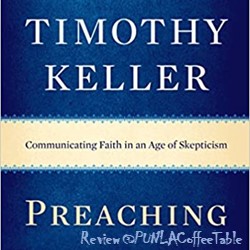written by Kip Wehrman (06/08/2023)
Episode 23V10 – Philosophy of Religion (Book Review)
Hello my friends. Thanks for joining me today for an @ the PUNLA coffee table. I would like to share with you an article I read by Keith Yandell “Philosophy of Religion”. I to share this with you as a potential resource that at least some of you might be interested in.
Okay the book is titled “Philosophy of Religion: A Contemporary Introduction” by Keith Yandell. Dr. Yandell begins his introduction by describing how religion and religious practices define our view of “what there is” and when “taken seriously, these views have implications for most if not all of life.” Yandell limits his discussion to two diverse sorts of religious traditions, monotheism and nonmonotheism. Yandel includes representative monotheisms in the form of Semitic monotheism (Judaism, Christianity, Islam), Hindu monotheism, and Greek monotheism, as well as the anti-monotheism of atheism. He includes representative nonmonotheism in the form of Hinduism, Buddhism and Jainism.
Dr. Yandell divides his book into five parts , (1) Philosophy and Religion, (2) Religious Conceptions of Ultimate Reality, (3) Arguments concerning Monotheistic Conceptions, (4) Arguments concerning Nonmonotheistic Conceptions, and (5) Religion, Morality, Faith and Reason. Yandell describes how each religion he will discuss includes views on “of what there is (metaphysics), of how it may be known (epistemology), and of what has deep value (value theory, including ethics).” Yandell differentiates the goal of the two predominant religious views. On one hand, monotheism’s goal is salvation or becoming rightly related to a personal God. On the other hand, nonmonotheism’s goal is enlightenment or becoming rightly related to an impersonal ultimate reality.
Part I, Philosophy and Religion, includes chapters defining not only philosophy and religion, but also chapters demonstrating the differences between the various religious traditions.
Chapter 2, “What Is Philosophy? What Is Religion? What Is Philosophy of Religion?,” Yandell loosely defines philosophy as constructing and assessing categorial systems. He follows with discussion of objectivity and resolves that neither description nor assessment can be truly objective. Yandell attempts to provide a neutral definition of religion as, “a religion is a conceptual system that provides an interpretation of the world and the place of human beings in it, bases an account of how life should be lived given that interpretation, and expresses this interpretation and lifestyle in a set of rituals, rites, institutions, and practices.”
In Chapter 3, What Sorts of Religions Are There?, Yandell defines the two predominant religious traditions, as monotheistic and nonmonotheistic. Monotheism centers on one God, as all-knowing and all powerful. Yandell contrasts the difference between Semitic monotheism (Judaism, Christianity, Islam) and other monotheism traditions like Hindu monotheism and Greek monotheism. Nonmonotheism centers on the person or self. These religions such as Hinduism, Buddhism and Jainism hold to a concept of the world is a place of suffering and the role of religion is to escape this reality through some form of enlightenment.
In Chapter 4, What Sorts of Religious Experience Are There?, Yandell breaks down the experiential aspects of these differing religious views. He generalizes these experiences as namely s-c-o, or subject-consciousness-object. Yandell uses several experiential examples to frame how the different religious perspectives would address these issues.
In Chapter 5, The Importance of Doctrine and the Distinctness of Religious Traditions, Yandell looks at what makes each religious tradition distinct from one another. The central argument for each tradition revolves around truth claims and identity. Yandell defines two kinds of identity, content and function. Based on his discussion, Yandell concludes that the thesis that all religions are basically the same is false. Religions exhibit high levels of diversity of thought.
In Chapter 6, Religious Pluralism, Yandell addresses the view of philosopher John Hick. John Hick’s normative pluralism argues that the materialist view of the mind and the epiphenomenalist view of the mind are mistaken, and therefore his religious pluralism is correct. Yandell goes on to argue that Hick’s views are incoherent by their own terms.
Part II is titled Religious Conceptions of Ultimate Reality and includes chapters on the concepts of ultimate reality in both monotheistic and nonmonotheistic religious traditions.
In Chapter 7, Monotheistic Conceptions of Ultimate Reality, Yandell includes Greek, Hindu and Semitic monotheism. Yandell also includes a section contrasting monotheism and atheisms. Monotheism is God exists and the anti-position is atheism, God does not exist.
In Chapter 8, Nonmonotheistic Conceptions of Ultimate Reality, Yandell includes Advaita Vedanta Hinduism, Janism and Buddhism as nonmonotheistic traditions. Yandell contrasts the three nonmonotheistic views of the “ultimate reality.”
Part III is titled the Arguments concerning Monotheistic Conceptions and includes chapters on the arguments for and against monotheism.
In Chapter 9, Arguments Against Monotheism, Yandell proposes three questions, “Is there an adequate theodicy? Is there a successful defense regarding evil? Is there a successful argument from evil?” Yandell addresses “the problem of evil” and how the various arguments do not ultimately provide evidence for or against the existence of God. Yandell concludes this chapter with a discussion on the consistency issue and evidential issues, concluding in each case the arguments neither prove nor disprove the existence of God.
In Chapter 10, Arguments for Monotheism, Yandell discusses several arguments often used to prove the existence of God. These arguments include logical necessity, ontological arguments, and empirical proofs, among others. Yandell concludes this section with the arguments of Thomas Aquinas. “Each of Aquinas’s five arguments concerns a different relationship as follows. Argument 1: something moving/changing something else. Argument 2: something causing something to come to exist. Argument 3: X can cease to exist by becoming Y. Argument 4: things having different degrees of worth. Argument 5: something behaving at least as if it were seeking a goal.”
In Chapter 11, Monotheism and Religious Experience, Yandell concludes part 3 of his book by discussing how experiences, subject-consciousness-object, provide evidence for the existence of God.
Part IV is titled Arguments concerning Nonmonotheistic Conceptions and includes chapters on the arguments for and against nonmonotheism.
In Chapter 12, Arguments concerning Nonmonotheistic Conceptions, Yandell concentrates on the arguments which appeal to conceptual experiences. Yandell shares several logical impossibilities, dualisms and identity theories which challenge these nonmonotheistic concepts.
In Chapter 13, Enlightenment-Based Arguments and Nonmonotheistic Conceptions of Ultimate Reality, Yandell concentrates on the arguments which appeal to non-conceptual experiences. He describes how enlightenment arguments are centered on psychological features like detachment, clam, bliss, etc. Yandell states that, “One stubborn fact prevents us from having a Principle of Introversive Experience: those who appeal to it do not agree on its phenomenological; description.”
In the final part, Part V titled Religion, Morality, Faith and Reason, Yandell reviews some overarching topics of morality, faith and reason as well as three prominent views on this topics.
In Chapter 14, Religion, Morality, and Responsibility, Yandell contrasts the ultimate values in each religious tradition. Yandell addresses the ultimate question of whether there can be morality without religion. Morality presupposes some sort of metaphysics, and many suppose morality without God is logically inconsistent.
In Chapter 15, Faith and Reason, Yandell outlines what is meant by faith, reason or rationality, and confirmationism. Faith involves belief which cannot be in vacuum. Reason, which is our capacity to know and test and argue. The philosophy of religion then is summed up in the question if a religious belief can be reasonably held.
In Chapter16, Some Further Vistas, Yandell concludes his arguments with epistemology is divided into internalism (self-evidence) and externalism (causation). Yandell sums up three perspectives, Moser, Plantinga and Alston.
Strengths and Weaknesses
This book does a good job of laying out arguments for and against each religious perspective. A book like this is very good at giving a high level overarching comparison of various religious worldviews from a philosophical perspective. At times the comparisons became confusing due to the distinctions between the various religious views which were often lumped together. This was most apparent when discussing the monotheistic perspectives and grouping of Semitic monotheism together (Judaism, Christianity, Islam). However, I understand the reasons for the grouping and the overall purpose of the book was still evident.
Practical Applicability
I greatly appreciated the arguments Dr. Yandell presented in this book. The philosophical review of the religious traditions and arguments for and against each basic premise was very informative. Keeping in mind this was a philosophical book, the examples were particularly useful. I think a book like this is useful in understanding the root premises of alternative religious views. It provides useful foundational information which can make communicating with those from these various traditions less complex.
I personally found Dr. Yandell’s book very educational. The book provided useful information on several religious traditions I was not previously exposed to in detail. I am appreciative of the content of this book and its organization. Dr. Yandell’s logical presentation was easy to follow. I would recommend this book to a reader who is interested in understanding the various religious viewpoints. The book could be used as a reference book as well, but the organization leads itself to a cover to cover read rather than spot reading. I plan to keep this book in my personal library for future reference. I really liked how Yandell defined atheism as a form of monotheism, or in fact the anti-monotheism. I especially liked the chapter 15 which discussed both faith and reason from a philosophical perspective. Faith being a belief which is affected by both internal and external factors, and reason which results in our capacity to argue for and against those beliefs.


